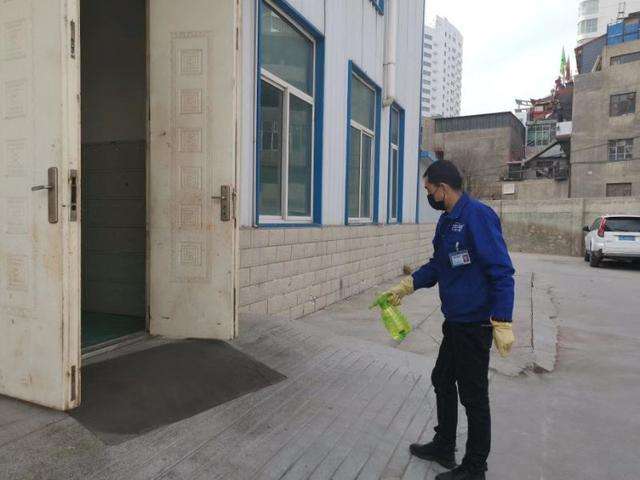The ministry of commerce said that 90 percent of the 17 pilot free trade zones (FTZS) with the exception of hubei province have returned to work, and more than 20 of the 55 zones have returned to work at or near 100 percent.
"I don't know the exact figures, but we are back to work," said xiao zhang, an employee of an entrepreneurship park in zhejiang free trade zone.
"Starting from the traffic jam on the hu-lu expressway and lianggang avenue, I feel that work has fully resumed," said an employee of an enterprise in the new lingang district of Shanghai. According to data provided by the management committee of Shanghai lingang new area, 95.4% of the 1,470 enterprises in its industrial park have returned to work.
Among 18 free trade pilot zones, 17 have basically resumed production. How is the situation in hubei free trade pilot zone? Pan helin, executive director of the institute of digital economics at zhongnan university of economics and law, told reporters that the difficulties facing the pilot free trade zone include difficulty in personnel management, handling affairs, business operations and financing. In particular, small and medium-sized enterprises have higher operating costs and more difficult capital turnover, resulting in more severe market contraction. At present, the speed of enterprises in the pilot free trade zone in hubei province is slower than that in other pilot free trade zones.
"On the one hand, the relevant departments of the pilot free trade zone in hubei should actively provide guidance services, and actively provide timely and comprehensive guidance services through online platforms, so as to ensure that enterprises should know all the relevant information and enjoy it quickly. On the other hand, actively connect with resources, through the online platform, do a good job with Banks, trust and other financial institutions as well as customers to connect and sign contracts. Pan and Lin suggest.
Xiao benhua, deputy director of the free trade zone research institute of Shanghai lixin accounting and finance university, said in an interview that the 18 pilot free trade zones play an important role in stabilizing China's foreign trade and foreign investment. In 2019, the total import and export volume of the pilot free trade zones accounted for 13.1 percent of the country's total. There were 6,242 foreign-invested enterprises and 143.6 billion yuan of foreign capital utilized, accounting for more than 15% of the national total. Therefore, to speed up the resumption of work and production in the pilot free trade zone, on the one hand, is directly conducive to stabilizing China's foreign trade and foreign investment, on the other hand, it can also send a signal to the international community that China will resume work and production in an orderly manner, so as to enhance foreign investors' confidence in China's economy.
At present, various pilot free trade zones have taken a number of practical measures to respond to the needs of enterprises and solve their "urgent need". The reporter discovers not fully combed, Shanghai, shandong, fujian, zhejiang, heilongjiang, yunnan, hainan, shaanxi, guangdong, jiangsu, and other free trade area from the tax incentives, financial support, pay the rent reduction, foreign exchange income and facilitation, logistics, customs clearance and protective supplies a one-two punch, solve the difficulty in enterprise to return to work and production.
For example, in order to solve the difficulty of employees returning home, the fuzhou area of fujian pilot free trade zone used "special buses for returning employees to pick up employees" to go to many provinces to pick up employees, and set up a medical team. In order to solve the shortage of employees, xi 'an high-tech comprehensive insurance and taxation zone of shaanxi pilot free trade zone, in conjunction with the human resources department, adopts the "cloud recruitment" method to actively promote online recruitment and remote interview. In order to solve the difficulties of government affairs such as examination and approval and tax handling, many government affairs service centers in guangdong, jiangsu, shandong and shaanxi pilot free trade zones have adopted the "non-contact" form of "online office, palm office and telephone office" to handle enterprise-related business. It took only one day to get the electronic certificate and license for the operation center project of chama xiansheng in the center of shaanxi pilot free trade zone. In order to solve the difficulty of attracting investment, the nansha area of the guangdong pilot free trade zone held the contract of "online + offline" construction in early march, involving 59 projects with a total investment of 160 billion yuan. To solve the financial difficulties, a number of FTZ Banks and other financial institutions strengthened their credit support. Fujian pilot free trade zone fuzhou area to help non-woven raw material polypropylene production enterprises rapidly expand capacity, coordinate the bank "urgent", within one day to complete 100 million yuan loan approval.
"At present, most enterprises in the pilot free trade zone have little difficulty in returning to work, but some enterprises are having difficulty in resuming production due to the recent decline in orders caused by the spread of the epidemic abroad. In addition, the spread of the overseas epidemic has exacerbated difficulties in international logistics and business development, affecting the resumption of work and production of enterprises in the pilot free trade zone." Xiao said.





